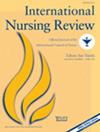Exploring the Role of Advanced Practice Nurses in Cardiology: A Scoping Review
Abstract
Aim
To analyze the role of advanced practice nursing (APN) in the cardiology context in outpatient and inpatient settings, detailing their roles, competencies, and responsibilities. It also provides an overview of the main degrees and postgraduate training programs for specialization in cardiology management in major Western countries.
Background
The increasing complexity of the healthcare sector requires an evolution in nursing education and clinical competencies to effectively manage care in complex and interdisciplinary contexts such as cardiology settings.
Methods
This scoping review followed the Joanna Briggs Institute framework. The Preferred Reporting Items for Systematic Reviews and Meta-Analyses extension for Scoping Reviews (PRISMA-ScR) was used to ensure rigorous and transparent reporting.
Results
Among the 647 records analyzed, 15 were included in this review. In the cardiology setting, the APN plays a critical role in clinical care, education, and research, providing both direct and indirect support to patients at all stages, across outpatient and inpatient settings. Thanks to the advanced skills acquired through specific paths, it also acts as a link between the healthcare team and patients, improving the provision of care through personalized and coordinated actions and promoting continuous training and research in the field.
Conclusions
APN enhances cardiac care by offering in-depth clinical assessments, education, and support throughout the treatment process. However, the lack of standardized regulatory frameworks in some countries limits the autonomy of cardiology APNs within the healthcare system, compromising their ability to address unmet healthcare needs and collaborate internationally.


 求助内容:
求助内容: 应助结果提醒方式:
应助结果提醒方式:


